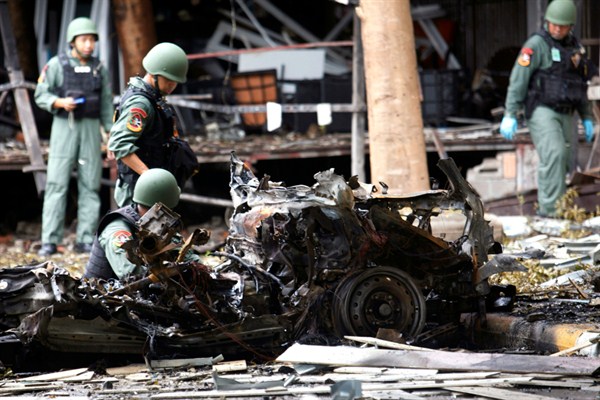Amid a recent spate of attacks, and with peace talks floundering, the long-running separatist insurgency in southern Thailand is showing worrying signs of escalation. On May 9, twin explosions at a busy supermarket in the southern province of Pattani injured 61 people, before a roadside bomb planted by militants killed six Thai soldiers in the same province on June 19.
Peace talks between Thailand’s ruling military junta, which seized power after toppling the democratically elected government in a 2014 coup, and a loose organization of rebel groups have been ongoing for more than two years. However, little progress has been made, as the most powerful militant group—known as Barisan Revolusi Nasional, or BRN—have been excluded from the dialogue.
Violence has spiked since the junta turned down the BRN’s request in April for talks mediated by a third party and overseen by international observers. Without a more inclusive strategy, Thailand’s government risks providing space for the insurgency to take a dangerous new turn and spread beyond the southern provinces, as the scorned separatists may opt for more audacious attacks to publicize their struggle and gain leverage over Bangkok.

